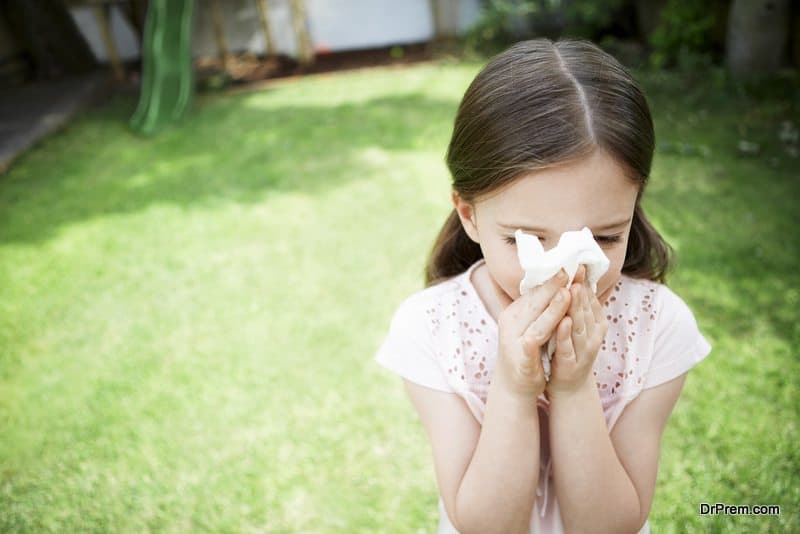The United States is the hub of allergies and asthma. Over 50 million citizens of the United States undergo acid suppression treatment for allergies every year. Pediatric allergies due to acid suppressors study show that around 8% infants were sent for acid suppressive therapy.

Why are such drugs prescribed to the infants knowing that it will increase the rate of allergies among them? Medicines like ranitidine and lansoprazole are often suggested for infants when they develop a tendency to vomit what they consume.
Pediatric allergies due to acid suppressors study have also suggested that such symptoms are quite common among children. Such medicines should only be given to children when their gastric condition is severe, and they badly need acid suppression treatment.
How to reduce pediatric allergies among infants?
- The suction of thumbs and biting of nails among infants has shown a reduction in the development of allergies.
- Allergies can also be reduced if the baby is habituated to breastfeeding. Vital vitamins and nutrients are usually provided to a baby through this process. Breastfeeding is also known to enhance the immune system of babies. For six months since the birth of a child, this process should be continued by the parents.
- A child, when an infant, should be introduced to a pet like a dog or a cat. Studies reveal that such an exposure is bound to enhance their immune system, which in turn will reduce allergies. Allergens and bacteria from a pet is the cause of such a reduction.
- Provide as much of fresh air as possible. The reason behind this is air pollution enhances the chance of promoting allergies towards food and pets.
- Diet should be regulated among women who are pregnant. Pediatric allergies due to acid suppressors study reveal that a pregnant woman should consume a diet rich in Vitamin D which includes eggs, milk, and Such eating habits will not let allergies and asthma affect the child.
What do pediatric allergies due to acid suppressors study reveal?
Children who were diagnosed with acid suppression medications like histamine-2 receptor antagonists or antibiotics like penicillin during the first six months of their life developed increased chances of asthma and allergies.
With the intake of the histamine-2 receptor, it was found out that infants were diagnosed with food allergy, anaphylaxis, asthma, atopic dermatitis, allergic rhinitis, allergic conjunctivitis, hives, and several other kinds of allergy.
The measure to be consumed also enhanced the risk of allergies. When infants have suggested proton pumps for more than 60 days, then the risk of pediatric allergies was found to be more than those who were prescribed to intake for less than 60 days. The risk was 52% more for those infants who consumed it for more than 60 days.
Acid suppression treatment at home
What do you think you should be doing when you see your child suffering from acidity? Symptoms of acidity among infants can be easily detected. These include throwing up of food right after consuming it, odor in a breath, gasping for breath, refusal for meals, pains in the chest, abdominal areas, and stomach, etc.
- The number of meals should be increased whereas the intake of food should be less in quantity at all intervals.
- Cereals should be added to all meals.
- Make your child sit straight right after meals.
If you see that the situations are getting out of hand, then you must immediately see your doctor. Though medications are proving to be harmful to infants, they are provided to them. Your doctor should be capable enough to provide your child with the right dosage.
Conclusion:
Medications to prevent acidity, should not be subscribed to infants. Even if it is subscribed, it should be given in the right dosage. Researchers have found out that when the dosage has been increased and continued for more than 60 days, it has severely affected an infant.
On the other hand, an infant whose dosage was regulated was seen to experience no allergies and asthma. The chances of getting allergies can also be reduced by many methods, which have been listed down in this article.
Studies have revealed that following such methods, the risk factor has been reduced to a huge extent. This is a serious concern and the society should take measures to eradicate growing level of allergic babies.








